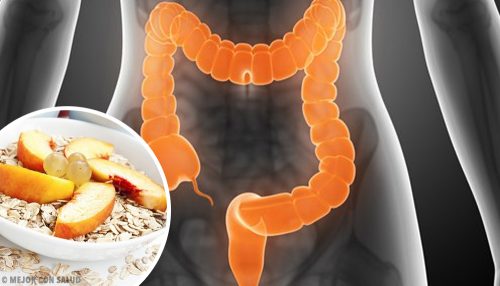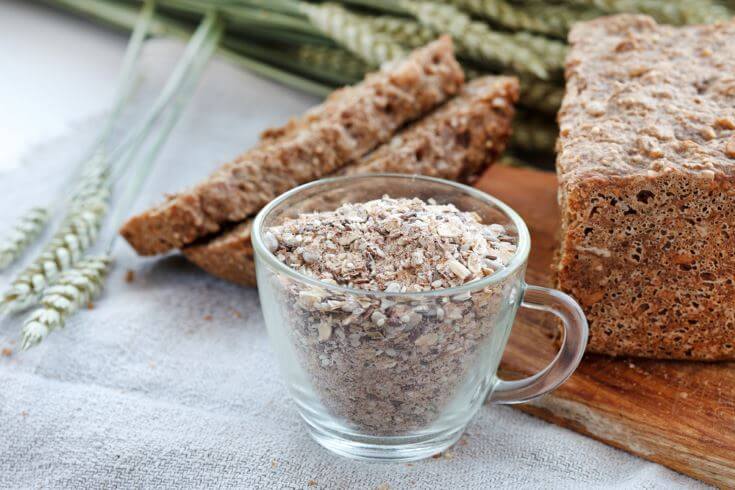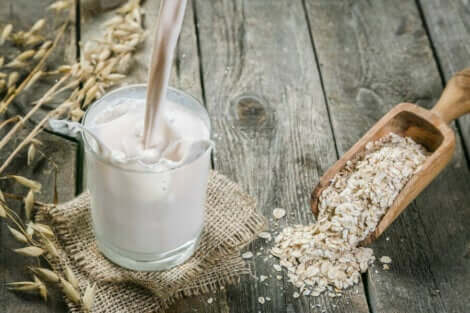Here's What to Eat to Treat Irritable Bowel Syndrome

Irritable bowel syndrome is a disorder that causes, among other effects, drastic intestinal transit changes and severe abdominal pain. It can alternate diarrhea with constipation and is closely related to eating. Fortunately, in most cases, it isn’t a serious pathology and its symptoms can be controlled by improving lifestyle and diet.
Therefore, below, we’ll advise you on what you should eat if you have this syndrome and, of course, what foods you should avoid. Of course, this isn’t a substitute for what your doctor tells you. In any case, it complements it.
What’s irritable bowel?
According to experts from the University Clinic of Navarra, irritable bowel syndrome (IBS) is a chronic disease characterized by causing abdominal pain and changes in bowel rhythm.
We could say that it’s a set of signs and symptoms that commonly manifest through intestinal discomfort and diarrhea. It can even have different incidences depending on where you live.
For example, in industrialized countries, it can be directly related to stress and type of diet. It can also be due to mood, as it influences intestinal secretions and triggers diarrhea. In fact, this problem affects people of all ages.
Irritable bowel syndrome is a chronic condition that can come and go, seasonally. It’s basically characterized by causing abdominal bloating, constipation, diarrhea, and flatulence.
How medical professionals diagnose it
You could suspect that you suffer from irritable bowel syndrome if you have abdominal pain that appears at least three days in a row and, in addition, it’s accompanied by:
- Increase in symptoms depending on the shape or appearance of stool.
- Appearance of symptoms after changes in the frequency of bowel movements.
- Improvement of symptoms after having a bowel movement.
According to MSD Manual experts, the diagnosis depends on the physical examination of the patient and certain tests (blood tests, ultrasound, X-rays, or a colonoscopy).
“They also use standard symptom-based criteria for the diagnosis of irritable bowel syndrome, called the Rome criteria.”
What should I do if I have irritable bowel syndrome?
While each person’s diet will be different, there are certain guidelines that most people with IBS should follow:
Eat a balanced amount of fiber

- On the one hand, you should reduce your consumption of insoluble fiber (which comes from whole grains such as pasta, bread, and cereals) so that it doesn’t contribute to imbalances in intestinal movement.
- On the other hand, you should increase your consumption of soluble fiber, which helps in the production of stool and the frequency of bowel movements. You can find this fiber in legumes, fruits, and vegetables.
Avoid fat and sugar
Foods rich in fat, refined sugars, and fructose (sugar found in some fruits such as apricots or cherries) can increase irritable bowel symptoms, as dietitian and nutritionist Juana María González Prada states.
Watch what you drink
- Coffee and tea should be consumed in moderation. Alcohol should be completely avoided.
- In addition, don’t forget to drink enough water a day. This way, you’ll make sure your whole body is hydrated, especially when it comes to the formation of stool.
- Water or herbal teas (such as chamomile tea) can help relieve constipation.
Control your stress

Oftentimes, it’s a matter of attitude and how you handle situations. Don’t worry too much, don’t bring work problems home, spend time doing what you like, and sleep well. If you add a good diet to the above, you’ll improve your irritable bowel syndrome in no time.
Discover: 5 Strategies Every Woman Should Use to Say Goodbye to Stress and Anxiety
Ideal foods for irritable bowel syndrome
Your eating habits are very closely linked to this condition. The factors that affect you the most are the frequency and quantity of food you eat. Eating more often but in smaller amounts is recommended. For example, if you usually eat three big meals a day, now try to eat six small meals (split each meal in two, basically).
Don’t forget to chew each bite well and eat slowly. Hurrying will just bring gas and indigestion. Take time to eat.
It’s also a good idea to keep a steady eating schedule. Try to eat breakfast, lunch, and dinner at the same times every day.
Here are some of the allowed foods for irritable bowel syndrome:
Fruit

Vegetables
Steam them so as to keep all of their nutrients and make them easier to digest. The best for this condition are lentils, asparagus, onions, and garlic.
Legumes and grains
Peas, lentils, and soy beans can be a big help if you have IBS. When it comes to grains, we recommend wheat, barley, and rye.
Dairy products

If you’re lactose intolerant, you can opt for vegetable milks. Otherwise, as long as they’re fat-free, dairy is safe to eat.
Doubts or discomfort? Consult your doctor
If you have any doubts, it’s best to consult your doctor. It isn’t advisable to consume remedies or foods if you have doubts about their effects on your body.
On the other hand, you must remember that no food, drink, or natural remedy is capable of curing or replacing the treatment your doctor prescribes you. In any case, it could complement it.
All cited sources were thoroughly reviewed by our team to ensure their quality, reliability, currency, and validity. The bibliography of this article was considered reliable and of academic or scientific accuracy.
- Rozman, C. Compendio de medicina interna, Elsevier España, 2005.
- Medline Plus [Internet]. Bethesda (MD). Biblioteca Nacional de Medicina de los EEUU. Fibra soluble e insoluble. 2016. (Consultado el 15/10/2018). Disponible en: https://medlineplus.gov/spanish/ency/esp_imagepages/19531.htm
-
Fermín Mearin Manrique, Jordi Serra Pueyo Elsevier España, 23 may. 2016 – 176 páginas.
This text is provided for informational purposes only and does not replace consultation with a professional. If in doubt, consult your specialist.








